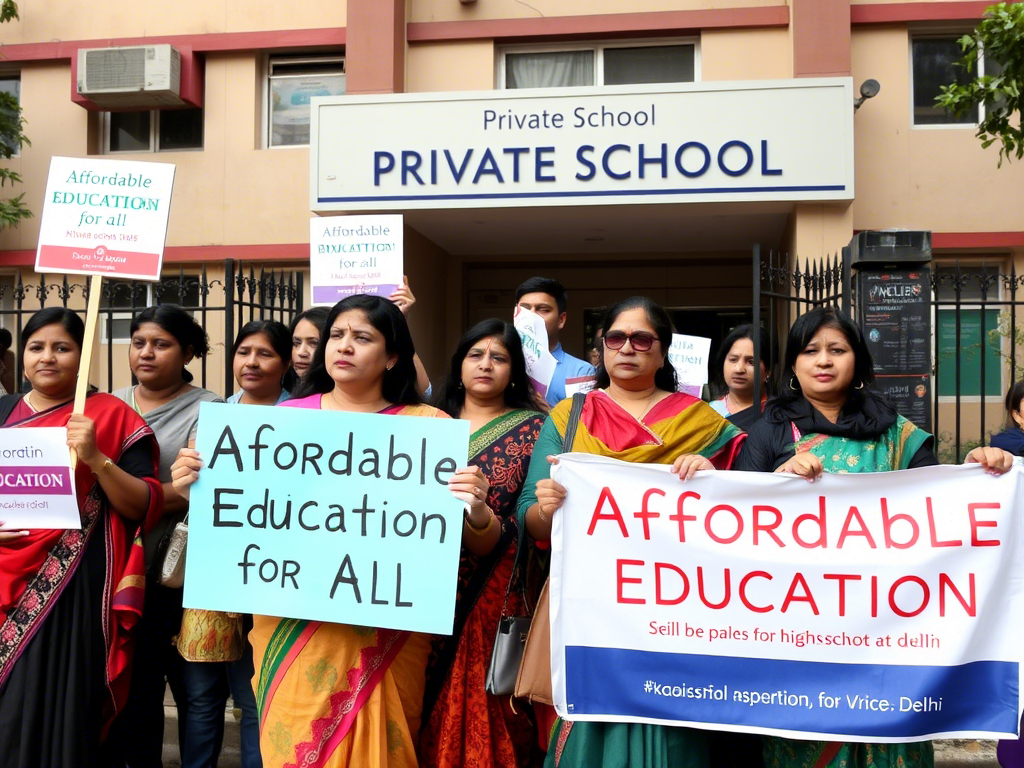Delhi’s Bold Move to Tame Private School Fees: What It Means for You

The Day I Saw a ₹4,000 “Smart Class Fee” on My Nephew’s Bill…
Let’s rewind to last year. My sister, like so many Delhi parents, handed me her son’s school fee receipt and asked, “Can you check this for me?” I took a glance and nearly spilled my chai. Hidden in fine print were charges like Smart Class Fee, Annual Development Fee, and even a Magazine Fund. He’s in Class 3. He barely reads comics!
And that right there is the heart of Delhi’s latest education reform—a direct strike at these arbitrary, often unexplained school charges.
What’s the New Law All About?
The Delhi School Education (Transparency in Fixation and Regulation of Fees) Bill, 2025 is the government’s answer to years of rising complaints about private school fees spiraling out of control.
Here’s the thing—most private schools have operated in a sort of grey zone when it comes to fee hikes. There was barely any oversight. That’s about to change.
Key Features (And Why They Actually Matter)
1. No More Surprise Fee Hikes
Schools can’t just wake up one morning and decide to hike fees by 20%. From now on, they’ll need approval from a regulatory committee. If they skip this step? They could be slapped with fines up to ₹10 lakh.
2. Fee Structure Locked for 3 Years
Yep, once the fee is set, it stays put for three academic years. For parents, this is HUGE. It means no more last-minute emails demanding additional payments mid-session.
3. Transparent Committees with Parent Power
Finally, parents get a seat at the table. Each school will have a fee committee that includes parents, teachers, and independent reps. No more rubber-stamping from just the school’s management.
4. No More "Pay or Get Penalized" Threats
The law prohibits schools from punishing students—like withholding results or denying entry—if parents refuse to pay fees not legally approved. Honestly, it’s about time.
Why This Law Hits the Right Notes
Let’s be real. Education isn’t just about books anymore—it’s a booming industry. And while many private schools do phenomenal work, unchecked commercialization has hurt trust.
This law feels like a much-needed thermostat in an overheating room. It balances autonomy and accountability.
Plus, the bill ties fee revisions to actual data points—like location, infrastructure, salaries, and surplus funds—rather than just… vibes.
Mixed Reactions: Cheers and Jeers
Parents = Applause Most parents are thrilled. One mom I spoke to said, “We’re not against fee increases. We just want to know why and where that money is going.”
Schools = Skepticism Some private schools, however, are worried about “excessive interference.” They argue that running a good institution isn’t cheap, and this might lead to bureaucratic delays.
FAQ: What Parents Are Asking
Q1: Will this reduce existing school fees?
No, but it will freeze and regulate future hikes. So you’ll at least avoid nasty surprises.
Q2: Can I challenge a fee if I feel it’s unfair?
Yes. The new system includes a grievance redressal committee at the district level.
Q3: Does this apply to all private schools in Delhi?
Yes, all recognized private schools come under this bill.
Q4: What if a school ignores the rules?
They could face penalties and even lose their recognition status.
It’s Not Just About Money—It’s About Trust
Parents aren’t asking for freebies. They’re asking for fairness. For transparency. For schools to treat them like partners, not customers.
Delhi’s new law may not be perfect, but it’s a solid leap toward accountability in education. And honestly, as someone who’s seen too many “creative” fee lists, I say—it’s about time.


